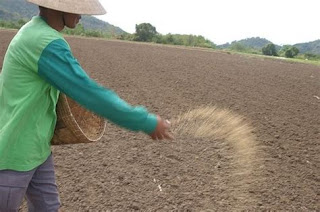Hezekiah: Humble prayer and true repentance.
“if my people who are called by my name humble
themselves, and pray and seek my face and turn from their wicked
ways, then I will hear from heaven and will forgive their sin and heal their
land.”
2
Chronicles 7:14
There are so many similarities between the time of Hezekiah
and our own. A time of national crisis, people trembling behind closed doors in
fear of a terror stalking the land. A time when many people had wandered away
from the worship of the true God to many false Gods. A time when those false
Gods no longer have an answer to our deepest needs. A time when hope had been
replaced by doubt and despair.
The history of Judah after the reign of Solomon had been pretty
disappointing: forever straying from the worship of Jehovah to the latest
fashion in idol worship. Hezekiah inherited a land riddled with Asherah poles
and high places, with total disregard for the creator God whose Holy presence
could be found centred in the Holy of Holies in the Jerusalem temple. Hezekiah
remembered the words of Jehovah to his great forefather Solomon. He reinstated
the worship in the Temple, and set about fortifying the city which surrounded
it, preparing for the inevitable siege that would come from the world
superpower which was Assyria, steamrolling its way towards them.
Finally, we see Hezekiah in a position where any lesser
leader would have been driven to despair and surrender. All his fortified
cities have been ground to rubble, and he is surrounded by the mighty hoards of
the cruel and merciless king of Assyria. Not only that, but he is faced with a
constant barrage of hostile propaganda and fake news. A world so very like our
own.
His brilliant engineers have fortified the city and secured
the water supply with an amazing tunnel. He has emptied the Temple of all its
silver and wealth to pay off the attacker. All to no avail, as hunger and fear
assault the besieged city.
However, we find that the overarching pride of the Assyrian
king becomes his downfall. He sends a letter with an ultimatum offering
Hezekiah surrender and deportation or death. He also mocks Hezekiah’s God, a
very foolish act to mock the Holy name of Jehovah.
Perhaps in this dark
time Hezekiah is reminded of one of the songs of his ancestor David.
Whoever dwells in the
shelter of the Most High
will rest in the shadow of the Almighty.
2 I will say of the Lord, “He is my refuge and
my fortress,
my God, in whom I trust.” ……
14 “Because
he loves me,” says the Lord, “I will rescue him;
I will protect him, for he acknowledges my name.
15 He will call on me, and I will answer him;
I will be with him in trouble,
I will deliver him and honour him.
16 With long life I will satisfy him
and show him my salvation.” Psalm 91 (ESVUK c 2001)
Hezekiah come with total humility and trust into the Temple
and spreads out the letter before his God, in perfect trust. Praying not just
to save the city, but to vindicate the name of Jehovah, who had been mocked.
NLT
14 After Hezekiah received the letter from the messengers and read it, he went up to the Lord’s Temple and spread it out before the Lord. 15 And Hezekiah prayed this prayer before the Lord: “O Lord, God of Israel, you are enthroned between the mighty cherubim! You alone are God of all the kingdoms of the earth. You alone created the heavens and the earth. 16 Bend down, O Lord, and listen! Open your eyes, O Lord, and see! Listen to Sennacherib’s words of defiance against the living God.
17 “It is true, Lord, that the kings of Assyria have destroyed all these nations. 18 And they have thrown the gods of these nations into the fire and burned them. But of course the Assyrians could destroy them! They were not gods at all—only idols of wood and stone shaped by human hands. 19 Now, O Lord our God, rescue us from his power; then all the kingdoms of the earth will know that you alone, O Lord, are God.”
The next morning, Hezekiah looked out over the city walls to
the sight of 185,000 dead in the Assyrian camp. Sennacherib, king of Assyria,
departed with His army utterly defeated, finally suffering the ultimate
humiliation of being assassinated in his own temple, by his own sons, his idols
looking on unable to protect him.
So, what can we learn from this story, in this time of not
just national but worldwide disaster?
Surely it is to come back in trust to the one true God,
Jesus Christ, who can save us. To not put our trust in natural means alone, but
to come humbly before the only God, who can summon up all the forces of the
heavenly armies to come to our aid.




















